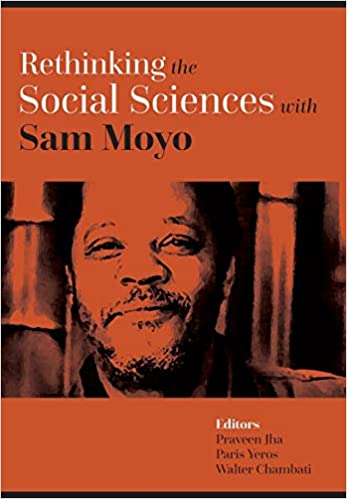Rethinking the Social Sciences with Sam Moyo is a tribute to one of Africa’s and Zimbabwe’s greatest modern thinker, Sam Moyo, who made an astounding contribution to social science with his intellectual work on the land and agrarian questions of the global South. The title of ‘fundi’[1] is truly apt for Sam Moyo. The essays in the book contextualize Moyo’s concerns with the global South in light of changes brought about by economic transitions and structural readjustment policies in peripheral regions. What stands out from a reading of the book is Moyo’s genuine commitment towards autonomous knowledge production from the South, and along with it, to bring about a change in society, a change that he believed in and advocated.
The book presents three essential points. First, it revisits the classical agrarian question (the European perspective), which has looked at the primal role of agriculture in industrialization to eradicate economic backwardness. Moyo elaborated that the contemporary agrarian question, carries with it the classical question, but also has its universal dimension, that of gender equity (Ossome 2020) and ecological sustainability. Since the agrarian transformation is taking place in the context of global financial capitalism―which sustains polarization between centre-periphery for its accumulation of wealth―the contemporary agrarian question is also a question of national liberation and sovereign industrialization (Moyo, Jha and Yeros 2015). Taking us through the arguments of Moyo, the volume successfully breaks away from the dichotomy of the backward/industrial framework and unveils the myth of industrialization.
Continue reading this review
[1] .Dzodzi Tsikata fondly uses this term for Moyo to describe his intellectual contribution to Africa’s agrarian and land issue. She writes, the term is ‘derived from “umfindisi” (a teacher), from the Nguni family of languages, meaning a master craftsmen, expert or genius.’
[2] . The current health crisis points to the COVID-19 pandemic.
[3] . Spanish phrase for the struggle continues.

